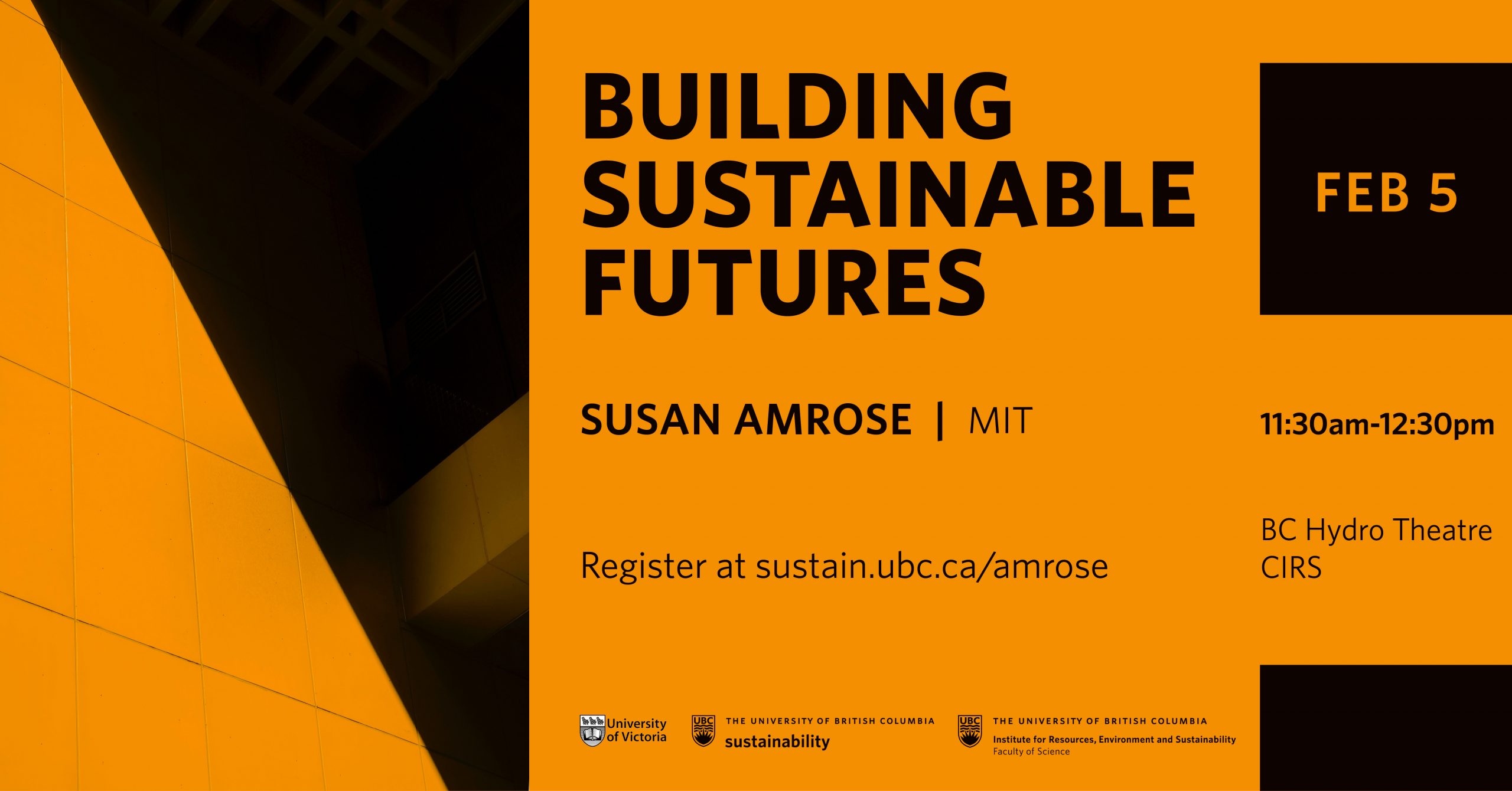
Creating High-Performance, Off-Grid, Village-Scale Desalination for Rural India using Electrodialysis that is Cost-Competitive with On-Grid RO
Time: Wednesday, February 5, 2020 – 11:30 to 12:30
Location: BC Hydro Theatre, UBC Centre for Interactive Research on Sustainability (CIRS), 2260 West Mall, UBC
India is facing the most severe water crisis in its history, making it necessary to use lower quality brackish water sources for drinking. The dominant technology used to desalinate brackish water is reverse osmosis (RO), which is energy intensive and can waste up to 60% of the water fed to it in small-scale systems. This high energy intensity increases the size and capital cost of the required power system for off-grid applications, making it particularly difficult for RO to reach the remote rural villages that are the most affected by water scarcity.
Electrodialysis (ED) is an alternative desalination technology that can save significant energy and water compared to RO for brackish water, but tends to have a higher process capital cost. It is well established on industrial scales, but has not been widely commercialized for village-scale applications. The Global Energy and Research (GEAR) Lab at the Massachusetts Institute of Technology (MIT) has developed innovations in system optimization, feed-forward voltage control, and cost-optimal integration with variable power sources, which have contributed to a village-scale photovoltaic-powered ED system that is cost-competitive with on-grid RO systems currently sold in India, based on levelized water cost.
This talk will cover these innovations, as well as their successive demonstration through a series of grid and off-grid pilot-scale systems operating in India, Gaza, and New Mexico. The co-development of these innovations with our industrial partner will be highlighted, as well as the path to commercialization and key roles of the research team and industrial partner throughout this process. Key technical factors that are necessary for long term sustainability, which were made evident during field trials, will be discussed, along with their (evolving) solutions. The potential to leverage these innovations to provide an economically viable option for the desalination of irrigation water, possibly paired with water efficient drip irrigation to reduce water demand, will be briefly explored.
Bio
Susan Amrose is a Research Scientist at the Global Engineering and Research (GEAR) Lab at the Massachusetts Institute of Technology (MIT). Her research focuses on developing affordable and scalable water treatment and drip irrigation solutions for developing and emerging markets. She previously worked at the Gadgil Lab at the University of California, Berkeley, where she played an integral role in the development of ECAR technology to remove naturally occurring arsenic from groundwater in India and Bangladesh. At Berkeley, she taught several interdisciplinary graduate courses on designing scalable technologies for low-income regions. Dr. Amrose earned her BS in physics and philosophy from the University of Michigan – Ann Arbor and her MS and PhD in physics from the University of California – Berkeley.
Click here to register now.